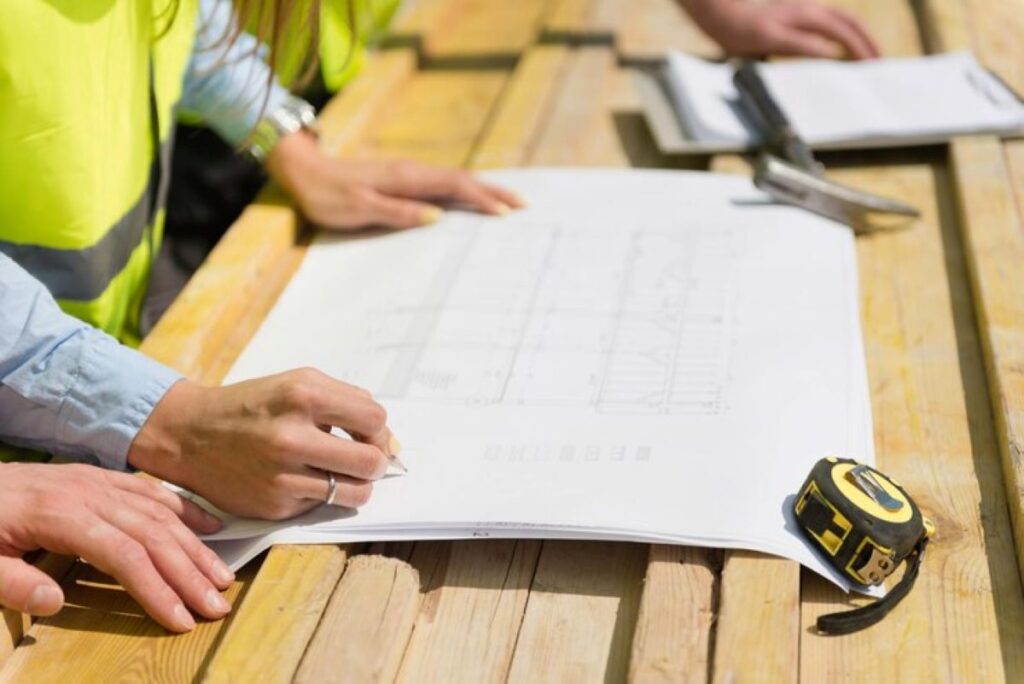When embarking on a construction project, whether it’s a residential build or a commercial development, hiring a qualified surveyor in Sydney is crucial. Surveyors play an essential role in ensuring that projects adhere to regulations, are accurately measured, and are completed on time and within budget. This article aims to provide comprehensive insights into the hiring process, the different types of surveyors, and the benefits they bring to construction projects in Sydney.
Understanding the Role of Surveyors
Surveyors are professionals who provide expert advice and services related to land, property, and construction. Their primary responsibilities include measuring land, preparing land surveys, and ensuring that construction projects comply with local regulations. In surveyors sydney, the role of surveyors has become increasingly important due to the city’s rapid development and the complexities involved in urban construction. As urban areas expand and evolve, the need for precise and reliable surveying has never been more critical, particularly in a city known for its diverse topography and unique architectural challenges.
Types of Surveyors
There are several types of surveyors, each specialising in different areas of surveying. The most common types include:
- Land Surveyors: These professionals focus on measuring and mapping land. They determine property boundaries and prepare legal documents for land ownership.
- Building Surveyors: Building surveyors assess the structural integrity of buildings and ensure that they meet safety standards and building codes.
- Quantity Surveyors: Quantity surveyors manage the costs associated with construction projects. They provide estimates, manage budgets, and ensure that projects remain financially viable.
Understanding the specific type of surveyor needed for a project is the first step in hiring the right professional. Each type brings unique skills and expertise that can significantly impact the success of a construction project. For instance, land surveyors often employ advanced technology such as GPS and laser scanning to enhance the accuracy of their measurements, while building surveyors may utilise software tools to conduct detailed inspections and assessments, ensuring that every aspect of a building adheres to the required standards.
The Importance of Surveyors in Construction
Surveyors are integral to the construction process for several reasons. Firstly, they help avoid costly mistakes by providing accurate measurements and assessments. Secondly, they ensure compliance with local laws and regulations, which can vary significantly across different regions in Sydney. Lastly, their expertise can streamline the construction process, making it more efficient and less prone to delays. The role of surveyors extends beyond just the initial stages of construction; they often remain involved throughout the project lifecycle, conducting regular inspections and providing ongoing advice to ensure that everything proceeds according to plan.
Moreover, as sustainability becomes a growing concern in the construction industry, surveyors are increasingly tasked with assessing the environmental impact of projects. They may evaluate land for its ecological value or advise on the best practices for minimising disruption to local ecosystems. This holistic approach not only enhances the quality of construction but also contributes to the broader goal of sustainable development, ensuring that future generations can enjoy the benefits of well-planned urban environments. In a city like Sydney, where natural beauty and urban living must coexist, the role of surveyors is vital in striking that delicate balance.
How to Choose the Right Surveyor in Sydney
Choosing the right surveyor is a critical decision that can influence the outcome of a construction project. Here are some key factors to consider when making this choice.
Qualifications and Experience
When hiring a surveyor, it is essential to verify their qualifications and experience. Look for professionals who are registered with relevant professional bodies, such as the Surveying and Spatial Sciences Institute (SSSI) in Australia. Experienced surveyors will have a proven track record of successful projects and a deep understanding of local regulations. Additionally, it is worth considering how long they have been practising in the field. A surveyor with several years of experience is likely to have encountered a variety of challenges and scenarios, equipping them with the problem-solving skills necessary to navigate potential obstacles that may arise during your project.

Specialisation
As mentioned previously, different surveyors specialise in various areas. Depending on the nature of the construction project, it may be beneficial to hire a surveyor with specific expertise. For instance, if the project involves a complex commercial building, a building surveyor with experience in commercial developments would be ideal. Furthermore, understanding the nuances of land surveying, engineering surveying, or even quantity surveying can significantly impact the efficiency and accuracy of the project. Each specialisation brings its own set of skills and knowledge, which can be pivotal in ensuring that the project adheres to all legal and environmental considerations.
Client Reviews and Recommendations
Client reviews and recommendations can provide valuable insights into a surveyor’s reliability and quality of work. It is advisable to seek feedback from previous clients or check online reviews. A surveyor with a strong reputation is likely to deliver satisfactory results. In addition to online testimonials, personal recommendations from friends, family, or colleagues can be particularly enlightening, as they often come with firsthand experience. Engaging with past clients can also shed light on the surveyor’s communication style and responsiveness, which are crucial factors in maintaining a smooth working relationship throughout the duration of the project.
The Hiring Process
Once the decision has been made to hire a surveyor, the following steps outline a typical hiring process.
Initial Consultation
Most surveyors offer an initial consultation, which is an opportunity to discuss the project’s requirements and assess the surveyor’s suitability. During this meeting, it is essential to ask questions about their experience, approach to surveying, and any potential challenges they foresee. This initial interaction can also provide insights into the surveyor’s communication style and professionalism, which are crucial for a successful working relationship. It is advisable to prepare a list of specific questions tailored to your project, as this can help gauge the surveyor’s expertise and ensure that they understand your vision and objectives.
Requesting Quotes
After the initial consultation, it is advisable to request quotes from multiple surveyors. This will allow for a comparison of services and fees. Be sure to clarify what is included in the quote to avoid any unexpected costs later on. Additionally, it can be beneficial to inquire about the timeline for the project and any potential delays that could arise. Understanding the surveyor’s availability and workload can provide further context to their quote and help you make a more informed decision. Don’t hesitate to ask for references from previous clients; this can provide valuable insight into the surveyor’s reliability and quality of work.
Final Decision
Once quotes have been received, it is time to make a final decision. Consider not only the cost but also the surveyor’s experience, communication style, and overall compatibility with the project team. It may also be helpful to revisit the initial consultation notes and reflect on how well the surveyor addressed your concerns and questions. Furthermore, if possible, arranging a follow-up meeting with your top candidates can provide an opportunity to clarify any lingering doubts and solidify your choice. Remember, the right surveyor can significantly impact the success of your project, so taking the time to ensure a good fit is well worth the effort.
Costs Associated with Hiring Surveyors
The cost of hiring a surveyor in Sydney can vary significantly based on several factors, including the type of surveying required, the complexity of the project, and the surveyor’s experience. Understanding these costs is vital for budgeting purposes.
Typical Fee Structures
Surveyors may charge fees in various ways, including:
- Hourly Rates: Some surveyors charge by the hour, which can be beneficial for smaller projects or consultations.
- Fixed Fees: For larger projects, surveyors may offer a fixed fee based on the scope of work. This can provide clarity and help manage budgets effectively.
- Percentage of Project Costs: In some cases, surveyors may charge a percentage of the total project costs, particularly for quantity surveying services.
It is essential to discuss the fee structure upfront to ensure transparency and avoid any misunderstandings later in the project.
Budgeting for Surveying Services
When budgeting for surveying services, it is crucial to consider not only the fees but also any additional costs that may arise. These can include travel expenses, costs for specialised equipment, and fees for obtaining necessary permits. A well-planned budget will help ensure that the project remains financially viable.
Benefits of Hiring Professional Surveyors
Engaging professional surveyors for construction projects offers numerous benefits that can enhance the overall success of the project.
Accuracy and Precision
Surveyors are trained to provide precise measurements and assessments, which are critical for the successful execution of any construction project. Accurate data helps prevent costly errors and ensures that the project adheres to design specifications.
Compliance with Regulations
Construction projects in Sydney are subject to various local laws and regulations. Professional surveyors are well-versed in these requirements and can help ensure that projects comply with all necessary regulations, thus avoiding potential legal issues.
Time and Cost Efficiency
By hiring experienced surveyors, construction projects can run more smoothly and efficiently. Their expertise can help identify potential issues early on, allowing for timely resolutions that save both time and money. This proactive approach can significantly reduce the risk of delays and budget overruns.

Common Challenges in Surveying
Weather Conditions
Adverse weather conditions can impact surveying activities, particularly for outdoor projects. Rain, strong winds, and extreme temperatures can delay surveys and affect the accuracy of measurements. It is essential for surveyors to have contingency plans in place to mitigate these challenges.
Access to Sites
Accessing construction sites can sometimes pose challenges, especially in urban areas where space is limited. Surveyors may need to coordinate with local authorities to secure necessary permits for access, which can add time to the project timeline.
Technological Limitations
While technology has greatly enhanced surveying practices, limitations can still arise. Equipment malfunctions or software issues can lead to delays or inaccuracies. Professional surveyors are typically equipped with backup solutions to address such challenges, but it remains a consideration in the hiring process. You may like to visit https://claytoncommunitychurch.org/5-benefits-of-working-with-sydney-land-surveyors-before-you-build/ to get more about the 5 benefits of working with sydney land surveyors before you build.
Conclusion
Hiring a qualified surveyor in Sydney is a vital step in ensuring the success of any construction project. By understanding the role of surveyors, the hiring process, and the associated costs, project managers and developers can make informed decisions that lead to efficient and compliant construction practices. The benefits of engaging professional surveyors far outweigh the challenges, making them an indispensable part of the construction landscape in Sydney.
Ultimately, the right surveyor can make a significant difference in the outcome of a project, ensuring that it is completed on time, within budget, and to the highest standards of quality and compliance.
